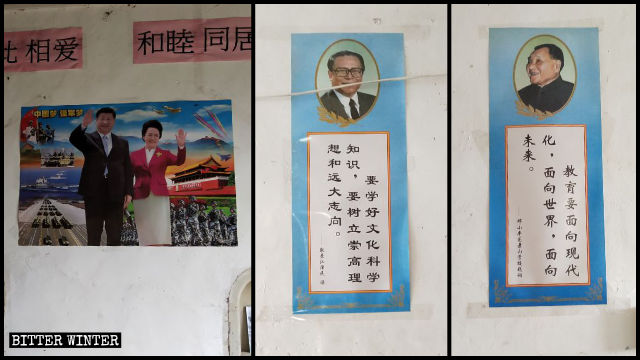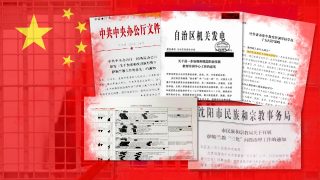People in need are left to fend for themselves, as orphanages, drug addiction centers, and homeless shelters are suppressed just because the services are provided by the religious.
by Ye Ling
As the CCP’s crackdown on religion increases, orphanages, drug rehabilitation centers, or other humanitarian activities are harassed and even closed down if they have any ties with churches or religious organizations. Claiming that they are promoting religion through their actions, authorities throughout China are suppressing these organizations based on the provisions in the new Regulations on Religious Affairs that state that “public interest charitable activities must not be used to proselytize by any organization or individual.” Afraid that religious charities will earn positive views from the public for providing services that the government does not, the CCP is persecuting them, instead of supporting their causes. The people in need have nowhere to turn.
Drug rehabilitation center suppressed
An evangelical drug rehabilitation center in the southeastern province of Fujian has helped many people with drug addiction through religion and the power of faith. The center, which provided its services free of charge, has received widespread praises. However, this did not protect it from CCP’s crackdown.
A staff member of the center revealed that in March, officials from the local Public Security Bureau, Religious Affairs Bureau, and other government departments stormed into the center, claiming that drug rehabilitation facilities are medical institutions and cannot serve as religious venues. The officials ordered the person in charge of the center to remove pictures of the cross, biblical verses, and other religious symbols posted on the walls. Instead, he was ordered to hang up a national flag and posters with slogans promoting the core socialist values and other propaganda, as well as portraits of President Xi Jinping and his wife, as well as former communist leaders. Threatened with the center closure, the person in charge had to comply. He was also required to send the Religious Affairs Bureau the photos of the “rectified” rehabilitation center for inspection.

The center has also been prohibited from carrying out any religious activities. In particular, it is forbidden to preach the gospel to drug addicts, and the only thing allowed to talk about in the center is China’s traditional culture. The center’s assembly hall was also forcibly shut down. Government personnel continue to visit the center for inspections at irregular intervals.
The drug rehabilitation center’s Taiwanese preacher was prohibited from conducting “illegal” missionary activities and is frequently summoned by the police that interrogate him about his possible ties with the United States or his “hidden political agenda” for working in the center.
A local Christian said that the drug rehabilitation centers set up by the local government not only charge fees but also have a meager success rate in helping people with drug addiction. While the suppressed religious center was a genuine public welfare service – and yet, the government wants to eliminate it. The believer doesn’t understand such actions by the government.
Christians arrested for helping vulnerable groups
At the end of last year, the police shut down the House of Loving Kindness (慈愛之家) – a non-profit Christian organization helping homeless people, the disabled, and other vulnerable groups in Yuexiu district of Guangzhou, the capital of the southern province of Guangdong.
On December 27, after a tip-off to the police, three Christians from the House of Loving Kindness were arrested under the pretext of “holding illegal gatherings” and were interrogated. The landlord of the organization’s building was pressured to terminate their lease.
The person in charge of the House of Loving Kindness explained to the police that their organization was non-for-profit, and it was benefiting society. A police officer admonished the man that the police are the ones that maintain social stability. “Do we need you, too?” the officer sneered. “We knew early on what you were doing. We won’t allow you to hold religious gatherings, disappear from this area right away!”
Donations confiscated because of references to Buddhism
In February, Buddhists in Laiyuan county under the jurisdiction of Baoding city in Hebei Province, donated some clothing, religious couplets, and paper cuttings for window decorations to local families of impoverished farmers. All the villagers were very pleased, and someone shared the story online.
The matter quickly attracted the attention of the local government – public security personnel tracked down the villagers who received the donations, questioned them on where they had come from, and confiscated all of the donated items. A village official revealed that the reason for this crackdown was the Chinese characters for “Buddha/Buddhism” on the couplets and paper cuttings – a big “no-no” for the government.
Suppression is increasing throughout the country
Similar regulations prohibiting religious charitable activities have been issued in other parts of China. A city in Henan issued a document last year that does not allow religious items or materials to be distributed with charitable donations. The edict also prohibits persons conducting charitable activities from wearing clothing with religious symbols or the names of philanthropic activities and projects having religious connotations.
The leading group on religious work in a county in the northern province of Hebei issued a document last May, entitled Public Security Bureau’s Work Plan for Conducting Special Governance on Important Issues in the Field of Christianity. It calls for increased surveillance of foreign NGOs, representative agencies, and companies with a Christian background, to prevent them from carrying out “infiltration activities” through businesses, cultural exchange, public charity, or other channels.
The difficult predicament of China’s religious philanthropic causes has been long in the making. Some religious charities have had no choice but to secularize to continue activities in mainland China. After more than 30 years of development, the Amity Foundation, which has a Christian background, has become a charity with virtually no Christian overtones; even the foundation’s logo and promotional materials contain no Christian symbols anymore. Meanwhile, Taiwan’s Tzu Chi Foundation, with a Buddhist background, stays away from politics and Buddhism when conducting charity work in mainland China.
Source:BITTER WINTER/Ye Ling



